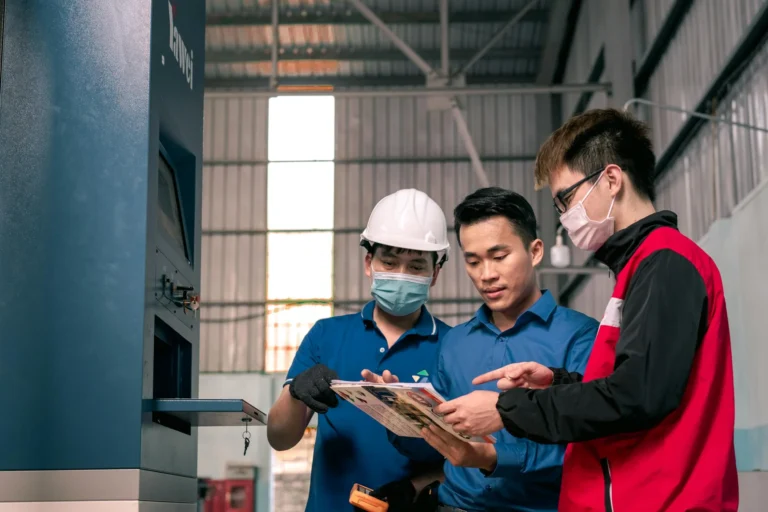Construction projects are complex and often involve numerous stakeholders, including contractors, subcontractors, owners, and project managers. As a result, construction projects can be fraught with risks that can have significant financial and safety implications.
Effective construction risk management is essential for ensuring that a project is completed on time and within budget, while also minimising the potential for accidents and other adverse events. By understanding the risks associated with a construction project and implementing strategies to manage them, project managers and other stakeholders can help to ensure the success of the project and the safety of those involved.

One of the key benefits of understanding construction risk management is that it can help to identify potential risks before they occur. This is crucial because many construction risks are not immediately apparent, and if they are not identified and addressed in a timely manner, they can lead to costly delays and other problems.
For example, a construction project may be delayed due to unforeseen weather conditions, such as heavy rain or snow. If the project manager has a thorough understanding of construction risk management, they will be able to anticipate this risk and implement strategies to mitigate it, such as by providing additional shelter for workers or securing more materials in advance.
In addition to identifying potential risks, understanding construction risk management can also help to prioritise risks and allocate resources accordingly. Not all risks are created equal, and it is important for project managers to be able to prioritise the risks that are most likely to occur and have the greatest potential impact on the project.
For instance, if a construction project is at risk of being delayed due to a lack of materials, the project manager may emphasise this risk over others and allocate additional resources to ensure that the materials are delivered on time. By prioritising risks and allocating resources accordingly, project managers can help to ensure that the project stays on track and is completed successfully.
Another important benefit of understanding construction risk management is that it can help to reduce the likelihood of accidents and other adverse events on the construction site. Construction sites are inherently dangerous places, and it is essential for project managers to implement strategies to minimise the potential for accidents and injuries.
By understanding the risks associated with a construction project, project managers can implement strategies to reduce the likelihood of accidents, such as by providing proper training and safety equipment for workers, or by implementing safety protocols and procedures on the construction site. This not only helps to protect the workers, but it can also help to reduce the potential for costly legal and financial repercussions.
Overall, understanding construction risk management can be a valuable tool for project managers and other stakeholders. By having an in-depth understanding of the risks associated with a construction project, project managers can anticipate potential risks and take proactive steps to mitigate them before they occur. This can help to ensure that the project is completed on time and within budget, while also reducing the potential for accidents and other adverse events to occur.

In addition to reducing the likelihood of accidents, understanding construction risk management can also help to somewhat mitigate the impact of risks that do occur. Even with the best planning and risk management strategies in place, there is always the possibility that a risk will occur on a construction project.
When this happens, it is important for project managers to be able to respond quickly and effectively to minimise the impact of the risk. For example, if a construction project is delayed due to unforeseen weather conditions, the project manager may need to implement a contingency plan to ensure that the project stays on track.
Other examples include responding to sudden changes in the local market or adapting a project plan following unexpected delays or cost overruns. By understanding construction risk management and being able to respond quickly and effectively to risks, project managers can help ensure that their projects stay on track and are completed successfully.
Ultimately, understanding construction risk management is essential for any successful construction project. By having a thorough understanding of the risks associated with the project, and implementing strategies to mitigate them, project managers can reduce delays, accidents, and other issues that could otherwise derail a project. As such, it is important for all stakeholders involved in a construction project to understand risk management principles so that they can be prepared to anticipate potential risks and take proactive steps to address them before they occur. This can help to ensure that the project is completed on time, within budget, and without any major issues.
By understanding construction risk management, project managers can develop contingency plans in advance, which can help to minimise the impact of risks that do occur and ensure that the project stays on track.
Overall, understanding construction risk management is essential for ensuring the success and safety of a construction project. By identifying potential risks, prioritising risks, reducing the likelihood of accidents, and minimising the impact of risks that do occur, project managers and other stakeholders can help to ensure that the project is completed on time and within budget, while also minimising the potential for accidents and other adverse events.
A good construction software makes use of good project management functionality, estimate and financial/accounting tool functionality, job management, scheduling and planning and support functionalities and more. WunderBuild is a construction management software that aims to provide all of these functionalities and more to bring out the best outcomes for a project.
It is currently offering a free trial, visit here to try WunderBuild for free.




